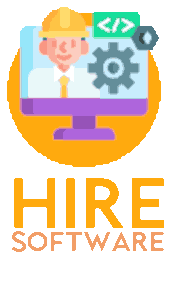Evaluate Software Engineer Candidates and ensure your team is enriched with talented architects of digital landscapes. Find the gem that drives innovation.
If you’re looking to hire a software engineer, you want to make sure you’re getting the best possible candidate for your team. Evaluating a software engineer’s skills can be challenging, but it’s crucial to ensure the success of your team.
In this article, you will learn how to evaluate software engineer candidates effectively. You’ll discover the key factors to consider, the types of questions to ask, and the methods to use.
Key Takeaways
- Effective evaluation of software engineer candidates is crucial for team success.
- Evaluation criteria for software engineers should include technical skills, problem-solving abilities, teamwork, and communication skills.
- Technical interviews, problem-solving assessments, portfolio review, behavioral interviews, and verification of technical credentials are all essential evaluation methods.
- Collaborating with your team throughout the evaluation process can help ensure a successful hiring decision.
Define Your Evaluation Criteria
Before evaluating software engineer candidates, it’s crucial to define your evaluation criteria. This will help ensure that you’re assessing all candidates fairly, and that you’re focusing on the skills and qualities that are most important for your team.
When defining your evaluation criteria, consider the following factors:
- Technical skills: Evaluate a candidate’s knowledge of programming languages, development frameworks, and software engineering principles. Test their understanding of algorithms, data structures, and system design.
- Problem-solving abilities: Assess a candidate’s ability to solve complex problems, debug code, and troubleshoot software issues. Look for evidence of their ability to think critically, work independently, and develop creative solutions.
Additionally, you should evaluate a candidate’s ability to work well with others:
- Teamwork: Does the candidate have experience working in a team environment? Can they effectively communicate and collaborate with others?
- Communication skills: Look for evidence of strong verbal and written communication skills. Can the candidate explain technical concepts clearly and concisely? Are they able to receive and give feedback constructively?
By defining your evaluation criteria upfront, you can ensure that you’re assessing each candidate on the same set of standards. This will help you make more informed decisions about who to hire, and ensure that you’re building a strong team of software engineers.
Conduct Thorough Technical Interviews
Technical interviews are a crucial part of evaluating software engineer candidates. They provide an opportunity for you to assess a candidate’s technical skills and problem-solving abilities. To conduct a thorough technical interview, follow these steps:
- Ask open-ended questions: Ask questions that require the candidate to provide detailed responses, such as “How would you approach solving this problem?” or “Can you explain how you implemented this feature?”
- Assess coding abilities: Provide coding challenges or ask the candidate to solve a coding problem during the interview. This will help you understand their coding abilities and problem-solving approach.
- Evaluate knowledge of programming languages: Ask questions related to the candidate’s knowledge of programming languages. This will help you assess their understanding of syntax and best practices.
- Assess problem-solving approach: Observe the candidate’s problem-solving approach during the interview. Are they able to break down problems into smaller parts? Do they ask clarifying questions? These observations will help you determine their approach to solving complex problems.
By conducting thorough technical interviews, you can evaluate the technical skills of software engineer candidates and gain insights into their problem-solving abilities.
Assess Problem-Solving Skills
One of the critical skills you need in a software engineer is problem-solving. But how do you test their problem-solving ability? There are various methods you can use to evaluate the problem-solving skills of software engineer candidates.
Employ Coding Challenges
One way to assess their ability to solve problems is through coding challenges. For instance, you can give them a coding problem and ask them to create an algorithm to solve it. This test can evaluate their ability to create efficient code, debug, and understand the nuances of specific programming languages.
Employ Algorithmic Problem-Solving
Algorithmic problem-solving is another excellent method to test their problem-solving prowess. In this instance, you can provide a complex problem, and they must break it down into small, solvable pieces that work together to solve the whole problem. This approach can validate the candidate’s thought process, analytical thinking, and ability to approach complex problems.
Use Real-World Scenario Assessments
You can also assess their ability to solve real-world scenarios. You can provide an actual business problem and ask the candidate to brainstorm, design, and develop a solution in real-time. This technique will help evaluate their critical thinking, creativity, and their ability to deliver results in a timely and efficient manner.
By adopting these methods, you’ll be able to evaluate the problem-solving skills of software engineer candidates more effectively and find the right candidate for your team.
Evaluate Collaborative Work Abilities
When evaluating software engineer candidates, it’s crucial to assess their ability to work effectively within a team dynamic. Collaborative work abilities are essential for successful project completion and positive team dynamics. Here’s how you can evaluate a candidate’s teamwork skills:
Assess Interpersonal Skills
Start by asking questions that help you gauge a candidate’s interpersonal skills. Consider asking questions such as:
“Tell me about a time when you had to work with a challenging team member. How did you handle the situation?”
Through their response, you can assess their ability to communicate effectively, handle conflict, and collaborate with difficult personalities.
Evaluate Communication Style
Effective communication is vital when working on complex projects. To evaluate a candidate’s communication style, consider asking:
“Tell me about a time when you had to communicate technical information to a non-technical team member. How did you ensure they understood?”
Through their response, you can assess their ability to explain technical concepts in simple terms, listen actively, and consider different perspectives.
Assess Ability to Work Within a Team Dynamic
In addition to asking questions, consider assessing a candidate’s ability to work within a team dynamic by conducting a team-based exercise. This can include a group coding challenge or a project simulation where each member is assigned a specific role.
By observing a candidate’s behavior in a team setting, you can assess their ability to collaborate effectively, delegate tasks, and contribute to achieving project goals.
Overall, evaluating collaborative work abilities is essential to ensure that a software engineer candidate can work effectively with the rest of the team. By assessing their interpersonal skills, communication style, and ability to work within a team dynamic, you can make an informed decision on whether they are the right fit for the organization.
Evaluate Software Engineer Candidates: Review the Candidate’s Portfolio and Projects
Reviewing a candidate’s portfolio and past projects can provide valuable insights into their skills, technical achievements, and problem-solving approach. It’s an opportunity to see their work in action and assess if their abilities align with the needs of your team. Here are some strategies for evaluating their portfolio and projects:
| Strategy | Description |
|---|---|
| Review Their Code | Take a deep dive into the candidate’s code and assess its quality, readability, and structure. It can help you understand their coding style and approach and determine if it aligns with your team’s needs. |
| Assess Their Technical Achievements | Look for evidence of their technical achievements in their past projects. This can include implementing new features, optimizing code, or fixing bugs. It can help you understand their level of technical expertise and their ability to solve complex problems. |
| Review Their Problem-Solving Approach | Assess how the candidate tackled problems in their past projects. Did they take a methodical approach to problem-solving, or were they more experimental? This can help you understand their problem-solving skills and how they approach challenges. |
| Assess Their Communication Skills | Look for evidence of the candidate’s communication skills in their past projects. Did they work effectively with team members, stakeholders, or users? Did they document their code and communicate their ideas clearly? This can help you understand their ability to communicate effectively and work collaboratively. |
Reviewing a candidate’s portfolio and projects can help you make more informed decisions about hiring a software engineer. It provides you with insights into their technical skills, problem-solving abilities, and communication style, making it easier to determine if they are a good fit for your team.
Conduct Behavioral Interviews
One important aspect of evaluating software engineer candidates is assessing their soft skills. Conducting behavioral interviews can help you gain insights into a candidate’s leadership abilities, ability to handle conflicts, and adaptability.
During a behavioral interview, you will ask situational and behavioral questions to understand how the candidate has handled certain situations in the past. These questions can include:
Can you tell me about a time when you had to resolve a conflict with a team member?
How do you react when faced with a difficult problem?
By asking these types of questions, you can gain insight into a candidate’s problem-solving approach and their ability to work well with others. When conducting a behavioral interview, it is important to listen carefully to the candidate’s responses and ask follow-up questions to gain a deeper understanding of their thought process.
Overall, including behavioral interviews in your evaluation process can provide valuable insights into a candidate’s soft skills and help you make a well-informed hiring decision.
Verify Technical Credentials and Experience

Verifying the technical credentials and experience of software engineer candidates is an essential step in the evaluation process. It helps you confirm the authenticity of the information provided by the candidate in their resume or application.
Conducting background checks, confirming educational qualifications, and checking technical experience are all ways to ensure that the candidate has the required skills to meet your company’s needs. Reach out to references provided by the candidate to gain insight into their work ethic, interpersonal skills, and technical abilities.
Utilize Technical Assessments and Tests
One effective way to evaluate software engineer candidates is by utilizing technical assessments and tests. These assessments allow you to gauge a candidate’s problem-solving skills, analytical abilities, and programming knowledge.
There are various types of technical assessments and tests available, such as coding challenges, coding tests, and algorithmic assessments. Each of these methods has its own benefits and drawbacks.
Coding challenges are excellent for assessing a candidate’s ability to solve complex problems within a given timeframe. On the other hand, coding tests evaluate a candidate’s understanding of coding structure, syntax, and logic. Algorithmic assessments, meanwhile, test a candidate’s ability to apply algorithms to complex data structures and problems.
When designing technical assessments and tests, ensure that your questions are relevant to the job role, challenging, and provide enough information about the candidate’s coding abilities. Additionally, seek feedback from your team to ensure that all assessments and tests are fair and unbiased.
Overall, technical assessments and tests should be utilized as part of a comprehensive evaluation process, alongside other assessment methods such as technical interviews and behavioral interviews.
Collaborate with Your Team
Remember that evaluating a software engineer candidate is not a one-person job. It is crucial to involve your team throughout the process to ensure you are selecting the best candidate for your organization. Here are some ways you can collaborate with your team:
- Conduct panel interviews: Have multiple team members conduct interviews with the candidate to gain diverse perspectives and insights.
- Gather feedback: Ask team members who interview the candidate to share their thoughts and opinions with you. This feedback can help you gain different viewpoints on the candidate.
By involving your team in the evaluation process, you can ensure a thorough and collaborative approach. Remember to involve team members who work closely with the software engineer position to gain the best insight into the candidate’s fit for the role.
Conclusion

Effective evaluation of software engineer candidates is crucial to building a successful team. By defining your evaluation criteria, conducting thorough technical interviews, assessing problem-solving skills, evaluating collaborative work abilities, reviewing the candidate’s portfolio and projects, conducting behavioral interviews, verifying technical credentials and experience, utilizing technical assessments and tests, and collaborating with your team, you can ensure that you make the right hiring decisions.
Remember to focus on both technical and soft skills to ensure that your new team member has not only the required technical knowledge but also the ability to work well with others and adapt to your team’s dynamic.
By following the strategies outlined in this article, you can be confident that you have chosen a qualified software engineer candidate who will help take your team to the next level.
FAQ

Q: Why is it important to effectively evaluate software engineer candidates?
A: Effectively evaluating software engineer candidates is crucial for ensuring the success of your team. By assessing their skills and abilities accurately, you can make informed hiring decisions and build a team of talented professionals who can contribute to your organization’s goals.
Q: What factors should I consider when evaluating software engineer candidates?
A: When evaluating software engineer candidates, it is important to consider aspects such as their technical skills, problem-solving abilities, teamwork, and communication skills. These factors will help you determine their overall suitability for the role and their ability to contribute effectively to your team.
Q: What types of questions should I ask during a technical interview?
A: During a technical interview, you should ask questions that assess the candidate’s coding abilities, problem-solving approach, and knowledge of programming languages. It is important to tailor the questions to the specific requirements of the role and evaluate their ability to think critically and apply their technical knowledge.
Q: How can I evaluate problem-solving skills in software engineer candidates?
A: To evaluate problem-solving skills in software engineer candidates, you can use methods such as coding challenges, algorithmic problem-solving, and real-world scenario assessments. These assessments will help you assess their ability to analyze complex problems, devise effective solutions, and apply their problem-solving skills in a practical context.
Q: How can I assess collaborative work abilities in software engineer candidates?
A: Assessing collaborative work abilities in software engineer candidates involves evaluating their interpersonal skills, communication style, and ability to work effectively within a team dynamic. Strategies such as group exercises, team-based projects, and behavioral questions can help you assess their ability to collaborate and contribute to a cohesive team environment.
Q: Why is it important to review a candidate’s portfolio and past projects?
A: Reviewing a candidate’s portfolio and past projects allows you to assess the quality of their work, their technical achievements, and their problem-solving approach. It provides valuable insights into their skills and abilities, helping you determine their suitability for the role and their potential to contribute to your team’s success.
Q: How can behavioral interviews help evaluate soft skills in software engineer candidates?
A: Behavioral interviews provide opportunities to evaluate soft skills in software engineer candidates by asking situational and behavioral questions. These questions help assess their leadership abilities, ability to handle conflicts, adaptability, and other essential soft skills that are valuable for success in a software engineering role.
Q: Why is it important to verify the technical credentials and experience of software engineer candidates?
A: Verifying the technical credentials and experience of software engineer candidates is important to ensure that their qualifications and experience align with the requirements of the role. Background checks, reference checks, and confirming educational qualifications help you validate their claims and make well-informed hiring decisions.
Q: How can technical assessments and tests be utilized in software engineer evaluation?
A: Technical assessments and tests, such as coding challenges, coding tests, and algorithmic assessments, can be used to evaluate software engineer candidates. These assessments provide objective measures of their technical skills and abilities, helping you assess their suitability for the role and their potential to contribute to your team.
Q: Why is it important to involve your team in the software engineer evaluation process?
A: Involving your team in the software engineer evaluation process is important for gathering diverse perspectives and ensuring a collaborative evaluation approach. Gathering feedback from team members, conducting panel interviews, and involving your team in the decision-making process helps you make more informed hiring decisions and build a cohesive team.







